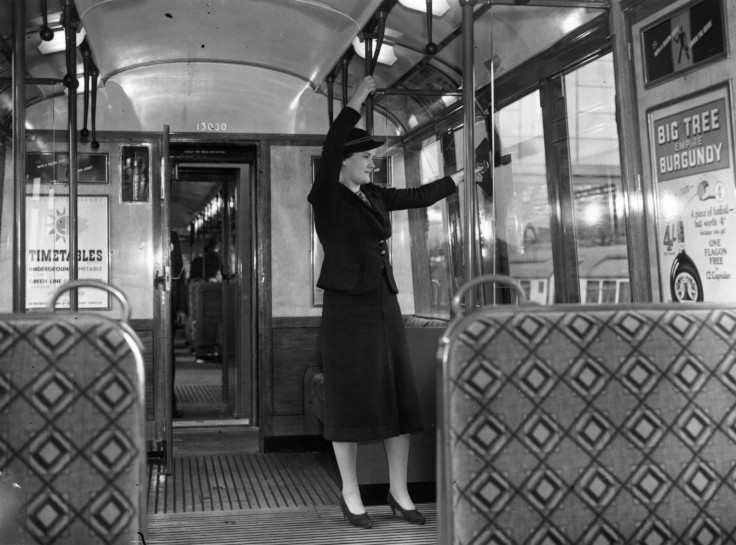Segregating women on trains is what religious extremists do – it has no place in modern Britain
However well-intentioned, calls for women-only carriages stem from the same idea that blames women for male behaviour.

The re-emergence of the brouhaha around same-sex train carriages is a reminder that the most dangerous person is sometimes the one who believes themselves to be entirely free of prejudice.
Following the Labour leader Jeremy Corbyn's thoughtless suggestion during his 2015 leadership campaign that he would consider introducing women-only train carriages, left-wing shadow minister Chris Williamson has now reiterated that it would be "worth consulting" on the policy.
Both sets of comments were made in response to police figures showing an alarming rise in the number of sexual offences being reported on public transport in the UK. It's worth saying (though it ought to be self-evident) that we should be more appalled by the apparent doubling of sexual offences on public transport than by any half-witted response to it.
Even if this were a spike simply in the reporting of assaults, it ought to provoke a degree of introspection as to why the crime might be so underreported in the first place. As it is, there were 1,448 sexual assaults recorded on trains in 2016-17, and probably many more that weren't.
Yet that doesn't detract from the lousiness of the proposal – something to 'consult on' or otherwise - to essentially segregate women aboard trains.
Indeed, both Corbyn and Williamson's comments sound like a cuddly version of the type of argument typically deployed to keep women hidden away from the male gaze. In this instance women will be shunted off into the other carriage, the door bolted firmly shut on them like the hatch on a chicken coop is brought down to protect the feathered creatures from the barbarity outside.
If the metaphor is a little too strong, consider that this is precisely the rationale used over the years by religious authorities that wish to keep women in a state of servitude. The female is an unwelcome temptation to the man. She is "uncovered meat" that "the cats come to eat", as the senior Australian Islamic Sheik Taj Aldin as-Hilali once put it.
In other words, it is the job of women to cover up, to remain in the home, or even to perch in another train carriage lest men decide to tear off their trousers and pounce on anything that moves. Or as my friend the secularist and feminist writer Lejla Kuric put it back in 2013, the assumption behind so much of this guff is that a woman behaving in a certain way resembles an "unwrapped lollipop", its sweetness irresistible to the marauding flies.
And like a bluebottle, us men come out of the whole thing smelling of s**t. We are (in Kuric's words) "...sex-obsessed beasts, with no control over their animalistic instincts".
I am admittedly taking a certain line of thinking to its extreme here. The point is not to compare left-wing men – men like Jeremy Corbyn and Chris Williamson – to backward 'community leaders', but instead to knock down a train of thought which, from the extreme all the way to its more ubiquitous version, ends up looking on women's safety as something deriving from the intricacies of women's behaviour.
I recoil from using the comparison – it was not so long ago that such rationalisations were used - but imagine for instance the same arguments for 'equal but separate' treatment being casually bandied around for other groups. Last year, evidence emerged of a rise in hate crimes against Eastern Europeans – ought they to have been separated out from the rest of us on London's transport system? Or how about an LGBT carriage on the Tube, painted in technicolour? Am I being patronising? If so, am I being any more patronising than the suggestion of special – 'equal, but separate' – train carriages for women?

Sexism, like racism, persists to some extent in all of us, even if we like to kid ourselves that prejudice is the preserve of an altogether different and alien type of human being. The social justice campaigner lives in the same society as the Daily Mail. To think of oneself as completely free of misogyny is the equivalent of visiting a quack-healer and declaring oneself immune from germs.
The point is to recognise that certain arguments, however well intentioned, are the rebarbative essence of things which were evacuated from the bowels of society generations ago.
Several countries have in fact tried same-sex train carriages already. Japan's right-wing Liberal Democratic Party introduced the policy in 2000 as a sop to so-called 'Asian values', the dominant ideology in a country where the relationship between men and women is profoundly broken. Brazil introduced a similar initiative in 2006. Several years later the country's O Globo newspaper ran an investigation which found that men were roaming about in women-only carriages anyway. Other countries that have experimented with the idea are such bastions of female emancipation as Iran, Egypt, and India.
This is not to look down, in typically 'Orientalist' fashion, on supposedly 'backward' lands whose social mores exist at a comfortable distance from our own estimable civilisation. Britain too has experimented with 'Ladies Only' compartments in the past. They were introduced in this country in 1874 by the Metropolitan Railway and were finally abolished just over a century later in 1977.
As well as getting rid of segregated train carriages, 1977 was also the year in which the first Reclaim the Night march took to the streets of Edinburgh. The marchers, who gathered on 12 November, made one straightforward demand: that "every woman should be able to walk anywhere and that they should not be blamed or restricted because of men's violence".
Were it forthcoming, this is one of those occasions when the familiar accusation that Labour is mired in nostalgia for the seventies could be reinterpreted as a generous compliment. As it is, some of its most senior politicians appear to have got the century wrong.
© Copyright IBTimes 2025. All rights reserved.





















